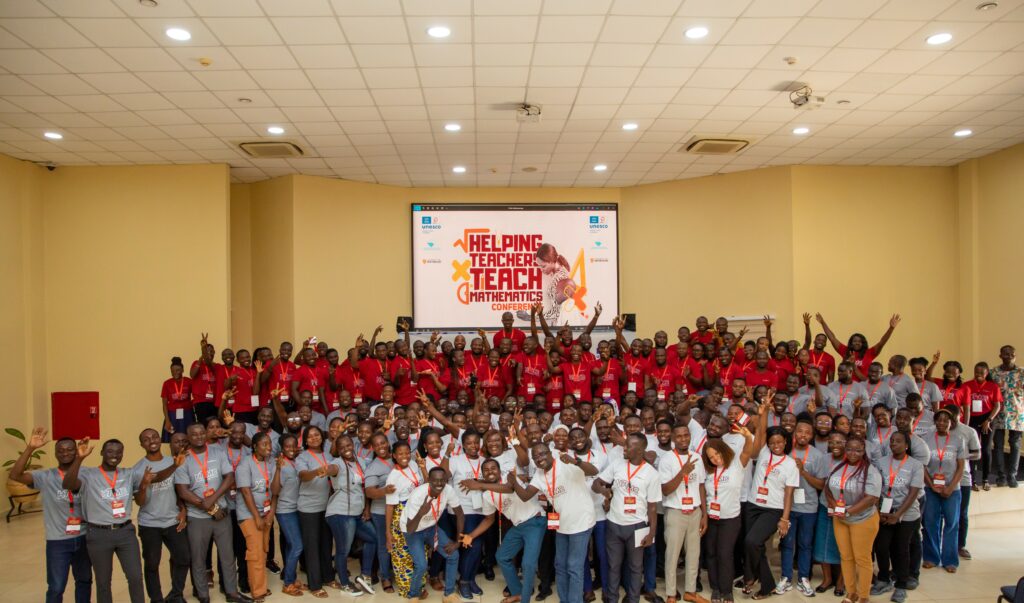Accra, Ghana – From May 14 to 16, 2025, the African Institute for Mathematical Sciences (AIMS) Ghana, in partnership with the Centre for Education in Mathematics and Computing (CEMC) at the University of Waterloo, hosted the third edition of the Helping Teachers Teach Mathematics Conference (HTTMC) at the University of Ghana. The 3-day hybrid event brought together 200 mathematics educators in person from across Ghana and 200+ online including teachers in the country and others in Kenya and Nigeria. This created a vibrant platform for professional development, collaboration and innovation in the teaching of mathematics and computing.
Under the banner of strengthening mathematical capacity and modernizing classroom instruction, HTTMC 2025 featured an impressive lineup of plenary sessions, practice-based tutorials, and parallel presentations by local and international educators. The event built on the success of its inaugural edition, continuing AIMS Ghana’s mission as a UNESCO Category II Centre of Excellence to transform mathematics education through teacher empowerment.
The conference commenced with welcoming remarks from the AIMS Ghana Centre President, Dr. Prince K. Osei and an energizing icebreaker session, setting the tone for three days of impactful learning. Plenary speakers, including Prof. Emmanuel Essel, University of Cape Coast, led insightful discussions on topics such as classroom best practices.
Sessions throughout the conference tackled diverse and pressing themes in mathematics education. Ms. Salomey Addo, University of Cambridge introduced the PRIMM framework for programming instruction, while Dr. Gloria Armah, University of Education, presented research on statistical reasoning challenges among pre-service teachers. Other presenters explored themes ranging from integrating games and puzzles into the curriculum to addressing math anxiety and supporting students with special learning needs.
Online speakers added a global dimension to the conference, with contributors from institutions such as NASA, the CEMC, Waterloo, and IDEMS International sharing interactive strategies and technology-enhanced methods for engaging students in mathematics. Attendees were treated to a rich lineup of engaging talks focused on enhancing math education through creativity, challenge, and real-world connection. Rich Dlin, University of Waterloo, shared insights from his travels across Ghana, highlighting accessible strategies to actively engage students of all levels. Ian VanderBurgh, CEMC Waterloo, addressed the importance and complexity of supporting advanced learners, while Carly Ziniuk, NASA Space Apps Collective, explored the intersection of history, art, and mathematics through curve approximation and Bézier curves. Judith Ann Koeller, CEMC Waterloo demonstrated how math classrooms can connect students to global issues through real-world problem-solving, and Jen Nelson, CEMC Waterloo led participants through hands-on problems that emphasized mathematical thinking and creativity. Together, these sessions offered both inspiration and practical tools for educators.
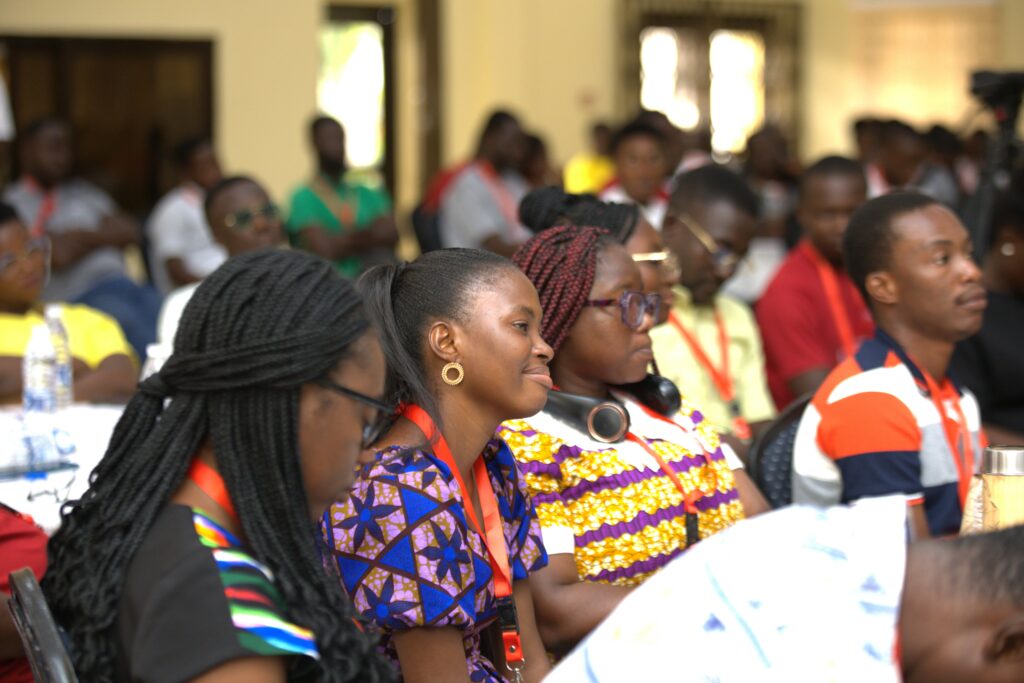
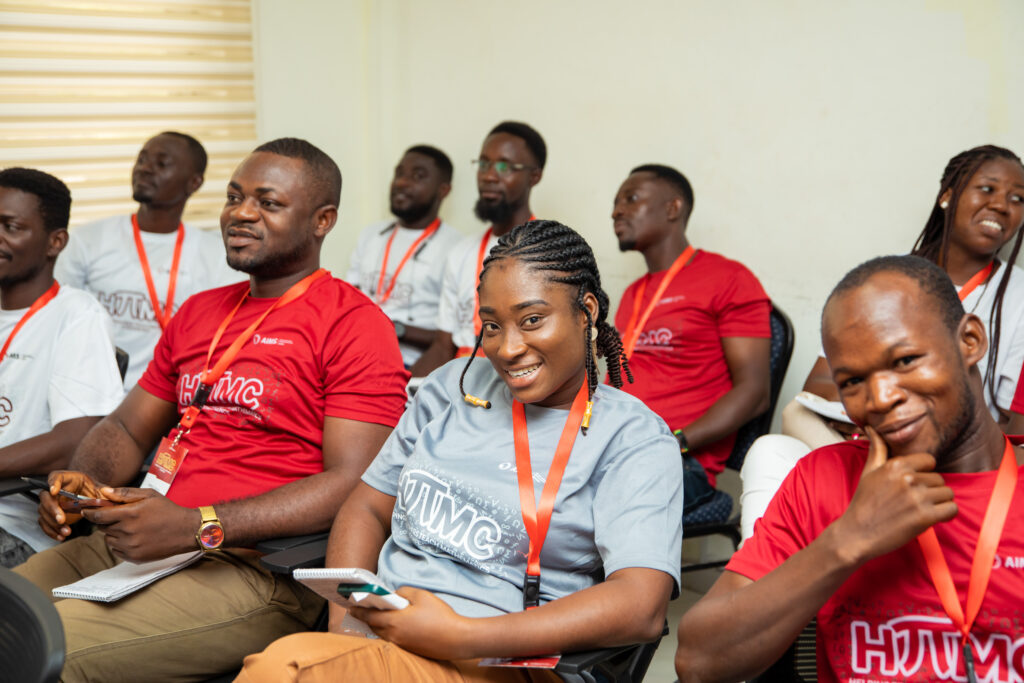
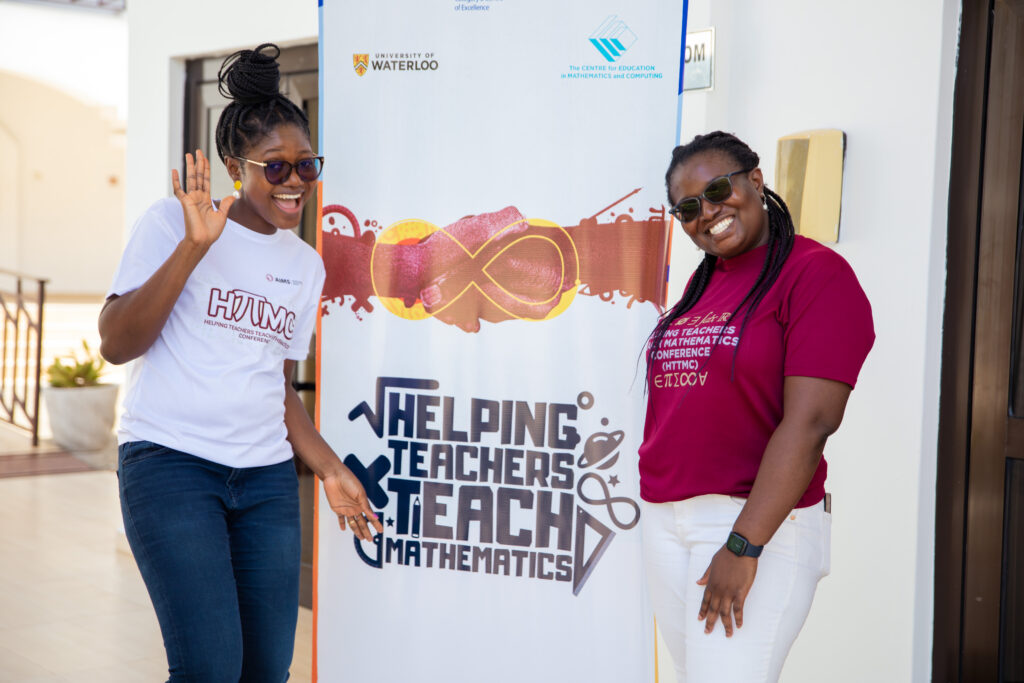
Dr. Chisara P. Ogbogbo, University of Ghana, emphasized the power of creativity and innovation in overcoming student aversion to mathematics across Africa. Prof. Peter Akayuure, University of Education, showcased the potential of games and puzzles to make math more relatable and engaging, encouraging logical thinking and collaboration. Participants also had a perspective into the International Baccalaureate system where John Afrim delved into education and technology integration, offering practical strategies to support diverse learners and enhance teaching through digital tools. Dr. Rhoda Hawkins, AIMS Ghana also addressed inclusive strategies for supporting students with diverse learning needs, ensuring every learner has the opportunity to succeed in mathematics.
Day three of the conference culminated in a plenary talk by Dr. Angela Tabiri from AIMS Ghana on “The Mathematics of Quantum Mechanics for High School Students”, which aligned with UNESCO’s proclamation of 2025 as the International Year of Quantum Science and Technology.
This was followed by a lively panel discussion on “Math Anxiety and How It Can Be Overcome” which brought together a distinguished group of education stakeholders. The panel featured Ms. Rhoda Nana Safowa, AIMS Ghana; Dr. Comfort Mintah, University of Waterloo; Mr. Daniel Yeboah, Presbyterian Schools; and Mr. Reginald Quartey, National Council for Curriculum and Assessment in Ghana, skillfully moderated by Mr. Joel Bamfo-Appiah, AIMS Ghana. Together, they shared insightful perspectives and practical strategies aimed at building learner confidence and creating more supportive, inclusive mathematics classrooms.
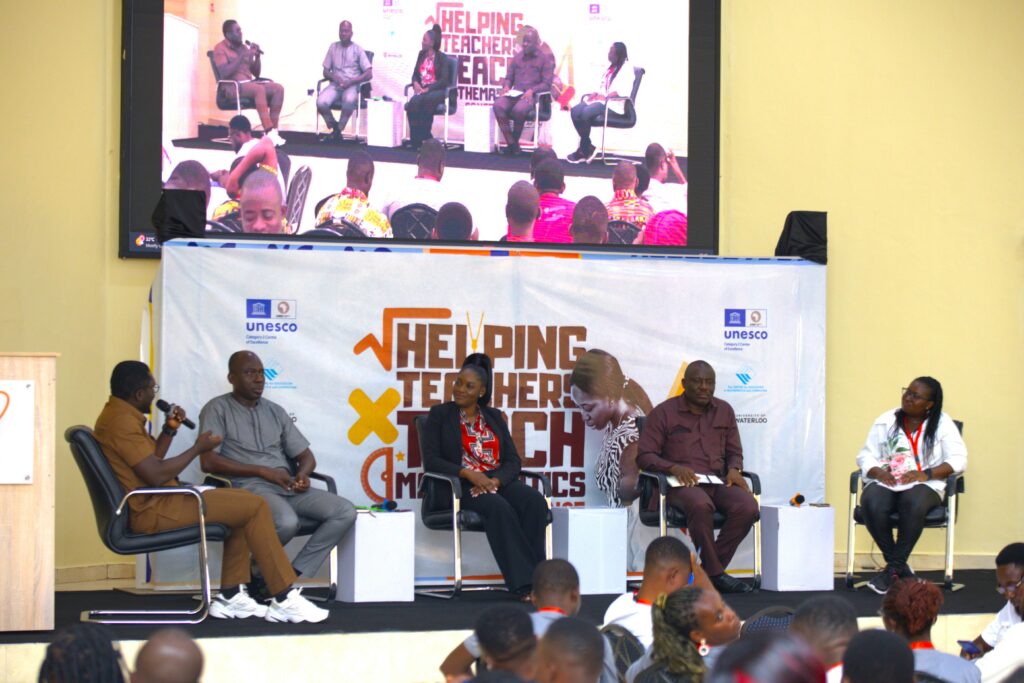
There were also creative teaching pitches by participants, showcasing innovative ideas for classroom transformation. Attendees departed not only with new skills and knowledge but also with renewed enthusiasm for their roles in shaping future generations of mathematicians.
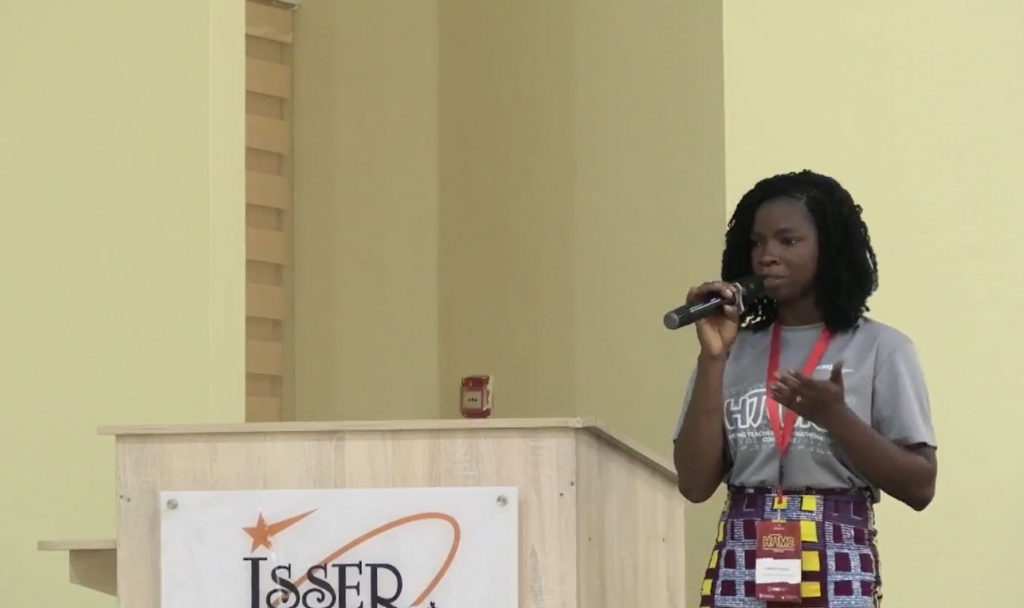
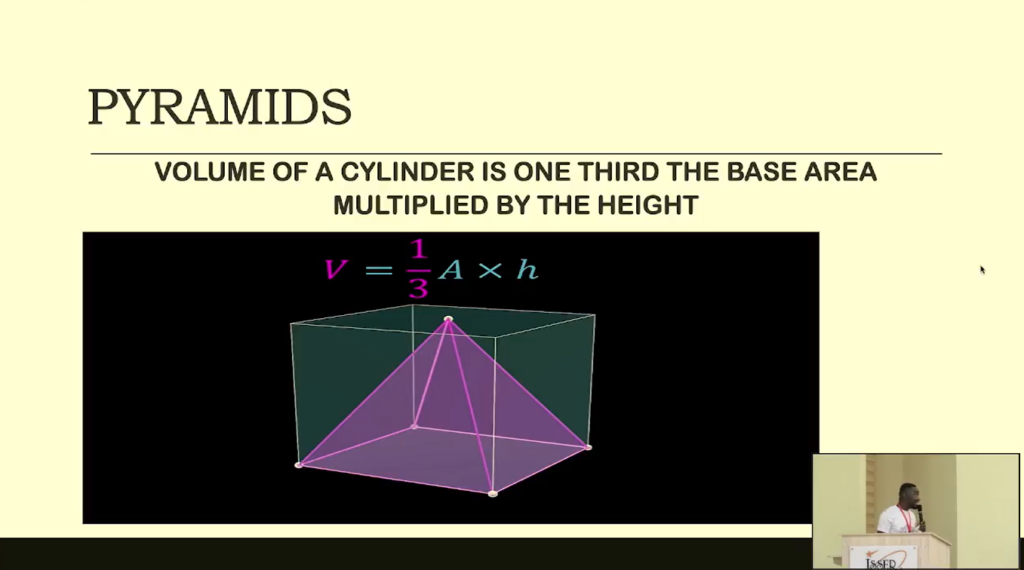
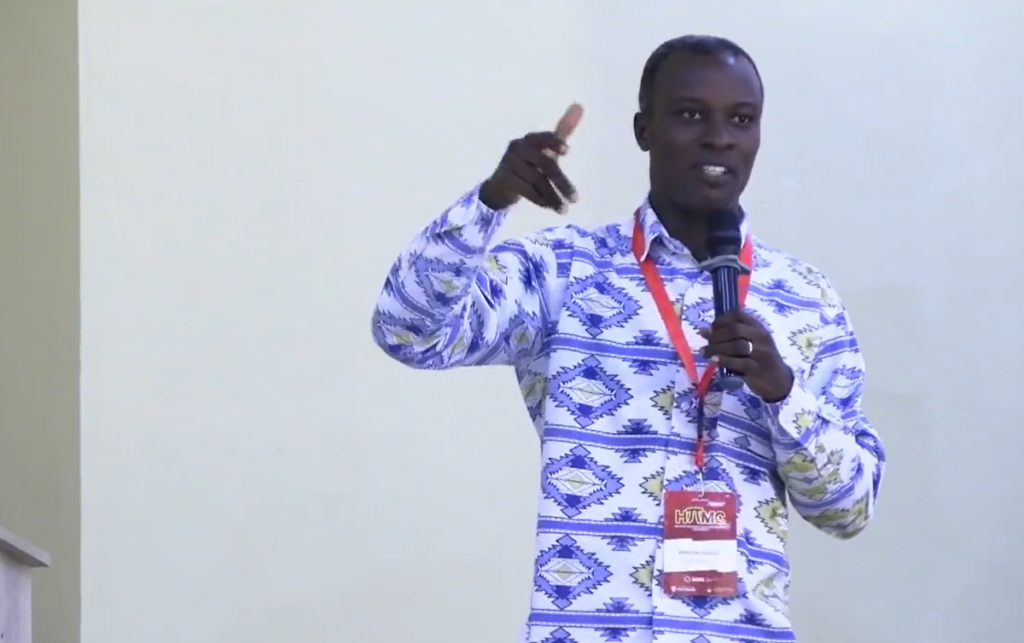
Organizers included Dr. Prince K. Osei, AIMS Ghana; Dr. Ian VanderBurgh, CEMC Waterloo; Dr. Comfort Mintah, CEMC Waterloo and Dr. Angela Tabiri; AIMS Ghana. Dr. Mintah stated that HTTMC 2025 reaffirmed the critical role of teachers in Africa’s STEM advancement and underscored the power of collaborative learning. Dr. Tabiri also highlighted the conference as one of AIMS Ghana’s flagship outreach initiatives, emphasizing that with support from partners like the CEMC, the conference continues to drive its vision of excellence in mathematics education across the continent.

